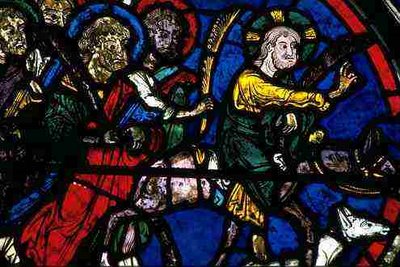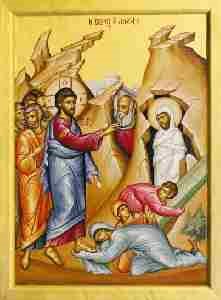 I have an ambivalent attitude toward TV. I watched TONS of it as a kid and read little. My wife was just the opposite: she looks at me as though I'm speaking a foreign language when I begin to reminisce about my TV viewing in the '80's. At times, I hate the TV--with all its commercials and mind-numbing flickering--but then, at other times, despite the flaws it possesses as a medium, there are some things I really enjoy watching. Here's a cleverly written and insightful article expressing some of these very same sentiments. In fact, here's as snippet:
I have an ambivalent attitude toward TV. I watched TONS of it as a kid and read little. My wife was just the opposite: she looks at me as though I'm speaking a foreign language when I begin to reminisce about my TV viewing in the '80's. At times, I hate the TV--with all its commercials and mind-numbing flickering--but then, at other times, despite the flaws it possesses as a medium, there are some things I really enjoy watching. Here's a cleverly written and insightful article expressing some of these very same sentiments. In fact, here's as snippet:Of course, TV has always been mostly awful. “Boob tube” did not begin as an anatomical observation. The myth persists of a Golden Age of Television in the 1950s, but the blurry surviving kinescoped evidence yields a baser metal. Way back in May 1961, Newton Minow, chairman of the Federal Communications Commission, called TV “a vast wasteland.” Well, the landscape is a lot vaster 44 years later, and still wasted, but how could it not be? TV never stops any more; there’s just too much of it. In the late 1940s, a station played “The Star Spangled Banner” by 10 p.m. and signed off for the night. The citizenry rested—or read or did their bit for the baby boom. There’s not enough talent even in today’s fame-crazed United States to keep TV interesting all the time. Remember: Most books are not worth reading either. And not every play took a prize in old Athens; the relatively few that survive by no means represent the lot that did not.
And I had to include this one just because he mentions one of my favorite shows, King of the Hill...
King of the Hill dates from 1997, but it’s never had the breakout success it deserves, which may be a good thing. Fame hasn’t gone to its head, as happened with The Simpsons. (Fox routinely sacrifices Hill on Sunday evenings to the gods of interminable football games.) The series has stayed steadily on track and low-key hilarious, at once a send-up and an affirmation of red-state America values. The Hill family of Arlen, Texas, may shop at the big-box Mega-Lo Mart, but they’re TV royalty: levelheaded patriarch Hank (the anti-Homer Simpson), purveyor of propane and propane accessories; his wife, Peggy, a substitute high school teacher, sometimes of Spanish, who has to wing it after hola; and their ample, affable, and fitfully adolescent 13-year-old son, Bobby, of Tom Landry Middle School. Good people all, who deserve a more compliant world.












